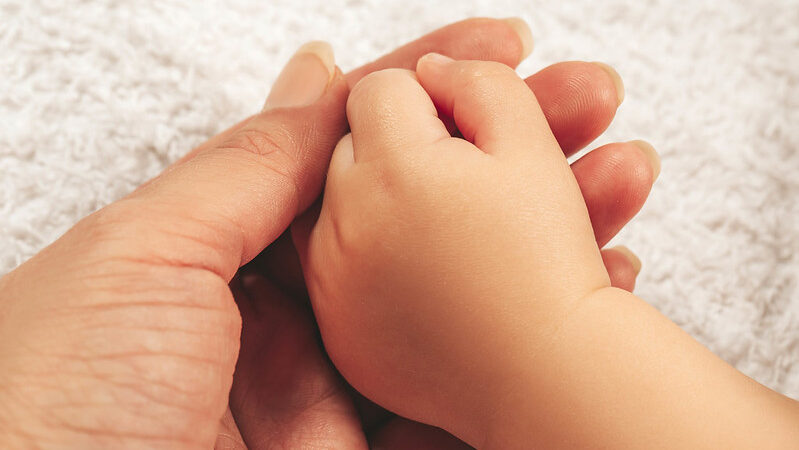Eli London
The UK’s first womb transplant has been deemed a success. The procedure could allow dozens of infertile women a year to carry babies.
The transplant took place in February 2023 at Churchill Hospital in Oxford. Surgeons went public with the news last Wednesday.
The donor, 40, donated her uterus to her younger sibling after having her own children. The 36-year-old recipient, who was born with an underdeveloped uterus due to MRKH syndrome, is now six months post-surgery, and having periods. While women with MRKH do not have periods, their ovaries are intact and still function to produce eggs and female hormones.
Both patients, who have opted to remain anonymous, are reported to be doing well.
'This is going to change so many lives.' @OwenJones84
'This will mean everything. It's a chance, it's a hope for the future.' @DrAmirKhanGP
Surgeons at Imperial College London have carried out the UK’s first successful womb transplant. pic.twitter.com/ErfhhbUmgK
— Good Morning Britain (@GMB) August 23, 2023
Womb transplant procedure
The £25,000 procedure was entirely sponsored and funded by charity Womb Transplant UK.
The removal of the uterus from the donor took over 8 hours and was removed while the recipient was simultaneously operated on, ready to receive the transplant. In total, combined efforts took the teams almost 18 hours.
Thirty medical staff members were involved in the surgery. Professor Richard Smith was one of two lead surgeons. He described it as “probably the most stressful week of our surgical careers but also unbelievably positive.”
Co-lead surgeon Isabel Quiroga, a consultant surgeon at the Oxford Transplant Centre, said the recipient “was absolutely over the moon, very happy and is hoping that she can go on to have not one but two babies.”
The recipient plans to use her own eggs for conception. Before receiving the uterus, the woman had two rounds of fertility stimulation to produce eggs, followed by intracytoplasmic sperm injection (ICSI) to create embryos. Discussing the recipient, Professor Smith said, “Hopefully that embryo will take, and hopefully nine months later she’ll [have a] Caesarean section.”
He went on to explain that: “she does have a choice, six months later, of a complete hysterectomy or to go and have another baby.”
The womb is expected to last 5 years before it will be removed. During this time, the recipient will receive immunosuppressive therapy to prevent her body from rejecting the donor organ.
The future of womb transplants in the UK
Quiroga highlighted that the surgery has been ready to attempt since before the COVID-19 pandemic. Asked how many womb transplants could be performed in the UK in future, Smith said: “Realistically you’re talking maximum numbers of 20 to 30 per year on the living donor side for the foreseeable future.”
The team hopes to eventually use living donors who are not relatives of the organ recipients, and many women have volunteered to become donors. Quiroga said that “there will be a time in the future when that is the main source of donors.”
Future donors, living or deceased, will still need to be accepted by NHS Blood and Transplant and the Human Tissue Authority.
Surgeons in Oxford have carried out the first womb transplant in the UK.
The recipient was a 34-year-old woman from her 40-year-old donor sister.
Professor Richard Smith was part of the team and spoke to #BBCBreakfast https://t.co/VfFfahWPF4 pic.twitter.com/uQKUgXvHbP
— BBC Breakfast (@BBCBreakfast) August 23, 2023
However, the procedure’s current scope of application will only benefit women with functioning ovaries but no womb or a womb that cannot maintain a pregnancy. This condition affects 1 in 5,000 women in the UK.
While the Gender Equality Act entitles Trans women to this care, only biologically female recipients have been used in animal and human trials of uterine transplant. The team behind the transplant has said that transplanting a womb into an individual with XY chromosomes at this stage isn’t “technically feasible.”
“Womb transplants offer new avenues for the future of women’s reproductive health”
Women’s reproductive agency has long seen a struggle for progress. Womb transplants offer hope for those unable to carry children of their own, and exciting new avenues for the future of reproductive health.
More than 90 womb transplants have been carried out worldwide, most involving a living donor.
The first womb transplant was performed in 2000 in Saudi Arabia but was removed after three months. Both Sweden and the US have achieved success in womb transplantation, with organ recipients going on to give birth.
The UK team is currently preparing for its second womb transplant, which is due to take place this autumn. Several more patients are currently in the consultation stages of the procedure.
READ NEXT:
-
BELGIAN UNIVERSITY LAUNCHES TAYLOR SWIFT LITERATURE COURSE
-
BIBBY STOCKHOLM: THE STORY BEHIND THE DISASTER
-
MISS UNIVERSE CUTS TIES WITH INDONESIA OVER SEXUAL ABUSE ALLEGATIONS
Featured image courtesy of Marco Verch Professional Photographer via Flickr. Image license found here. No changes were made to this image.

